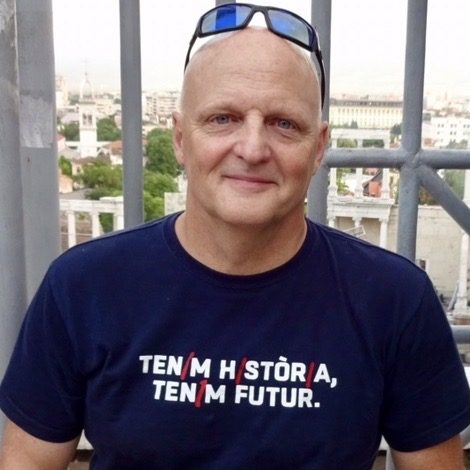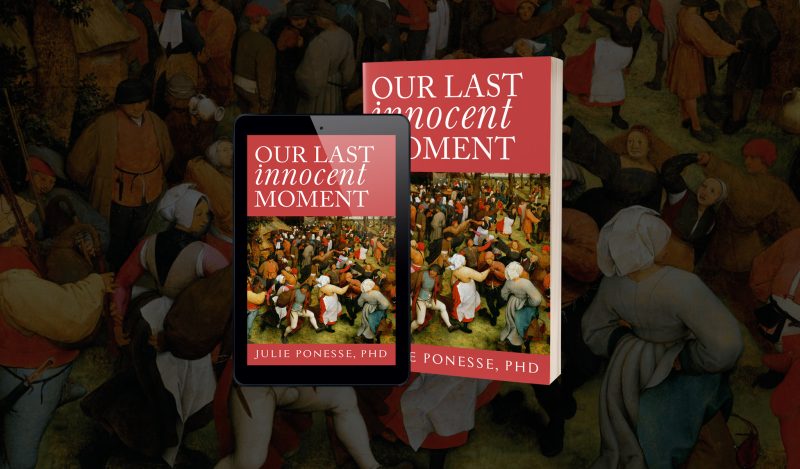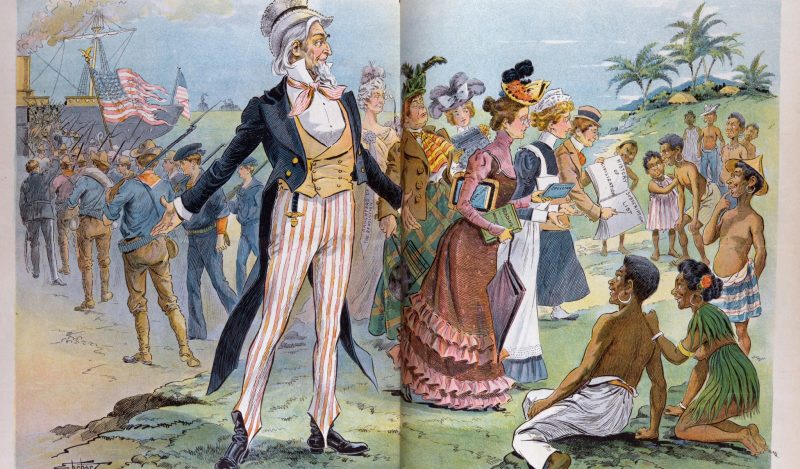Most of us, I suspect, have had the experience of walking into a darkened room we presume to be empty, only to find someone sitting silently in the shadows observing our movements. When this happens, it is, initially at least, an unnerving experience.
Why? Because, though we don’t often speak about this, there are things we do, think about, and say to ourselves when alone that we would never allow ourselves to do, think about, or say to ourselves in the presence of others.
When seeking to understand what Bourdieu called the “structuring structures” of a culture it helps to have a keen ear for language, and more specifically still, an ability to register the ways in which certain terms have entered or left the culture’s everyday lexicon over the course of our lives.
For example, words which were once reserved for the expression of our most savage emotions have gone banally mainstream, while words like dignity and integrity, which embody timeless and universal ideals, have become surprisingly scarce.
On those few occasions when it is uttered today, integrity is pretty much used as a synonym for honesty. While this is not wrong, I think it gives short shrift to the fullness of the concept lurking behind the word. Viewed etymologically, to have integrity is to be integral; that is, to be “one of a piece” and therefore largely devoid of internal fissures. In practice, this would mean being – or more realistically – assiduously seeking, to become the same person inside and out, to do what we think, and think about what we do.
Going back to the example of the dark room above, having true integrity would mean getting to a point where the sudden presence of the other person in the shadows would not disturb us. Why? Because he or she would be seeing nothing in us that we would not want to be seen, or that we had not displayed openly on countless occasions in public settings.
There is, I believe, also an important existential correlate to this idea of integrity. It might be summed up as the ability to enter into an active, honest and fruitful dialogue with what awaits us all: diminishment and death. It is only through a constant and courageous engagement of the mystery of our own finiteness that we can calibrate the preciousness of time, and the fact that love and friendship may, in fact, be the only things capable of mitigating the angst induced by its relentless onward march.
There is nothing terribly new in what I have just said. Indeed, it has been a core, if not the core, concern of most religious traditions throughout the ages.
What is relatively new, however, is the full-bore effort by our economic elites and their attendant mythmakers in the press to banish these issues of mortality, and the moral postures they tend to channel us toward, from a consistent public view.
Why has this been done?
Because talk of transcendent concerns like these strike at the core conceit of the consumer culture that makes them fabulously wealthy: that life is, and should be, a process of endless upward expansion, and that staying on this gravity-defying trajectory is mostly a matter of making wise choices from among the marvelous products that mankind, in all its endless ingenuity, has produced, and will continue to produce, for the foreseeable future.
That the overwhelming majority of the world does not, and cannot, participate in this fantasy, and continues to dwell within the precincts of palpable mortality and the spiritual beliefs needed to palliate its day-to-day angst, never seems to occur to these mythmakers.
At times, it is true, the muffled screams of these “other” people manage to insinuate themselves into the peripheral reaches of our public conversation. But no sooner do they appear than they are summarily banished under a concerted rain of imprecation, containing words like religious fanatic or fundamentalist, terms whose only real purpose is to drain their very real and logical complaints of any inherent moral claim.
And if, after belittling them and their concerns, they continue to squawk, we are not at all immune to killing them. And when we do, we don’t even give them the minimal respect of having been fundamentally human, referring to them instead with terms like “collateral damage,” and completely foreclosing the possibility that they might have died following a moral vision that might be at least as compelling and legitimate as our “right” to continue consuming the riches of the world and denying our mortality as we see fit.
And it’s not just the foreign others that we assiduously “disappear” from our visual and affective horizons.
The elderly were once seen as a precious resource, providing us all with much-needed wisdom and emotional ballast as we navigated life difficulties. Now, however, we lock them and their encroaching decrepitude away so that they do not impinge upon our frenzied, self-directed pep talks about the importance of staying forever young and highly productive.
So what eventually happens to a culture that has worked overtime to keep the key human realities of death and diminishment safely locked in the closet?
What happens is what happened to a considerable part of our population in the midst of the Coronavirus crisis.
After so many years of essentially telling themselves that mortality is a curable condition (for us), or one whose pain we can disappear (when we visit it on others), they found themselves largely incapable of confronting the danger that the Coronavirus now poses for us in a halfway rational and proportional fashion.
Am I saying that the Coronavirus did not constitute a real threat to some? Absolutely not. It has produced a very real health care crisis—which is not necessarily the same as a huge mortality crisis—and obviously has the potential to kill lots of people.
But then again so does the often planned poverty of wars of choice of the type this country has become so expert in waging over the last thirty years. And when we talk about the things I have just mentioned, we are not navigating in the realm of potential calamity, as with the virus, but rather in that of starkly proven realities.
Indeed, coldly estimating loss of life, and making judgements about how much of it is required to achieve X or Y strategic goal is baked into our economic and military systems. And we’ve got the armies of actuarial scientists to prove this.
Just think of Madeleine Albright telling us unashamedly on 60 Minutes that the death of 500,000 children as a result of American bombing of Iraq in the nineties “was worth it,” or Hillary Clinton chortling on screen about the death by bayonet thrust in the anus of Gaddafi, an event that led to the destruction of Libya and tens of thousands of additional deaths across the entire northern half of Africa. Or the hundreds of thousands of deaths caused by the invasion of Iraq, or the current US-supported bombing of the wretchedly poor and cholera-ridden population of Yemen. If you are looking for a real crisis of mortality, I could point you in the right direction real quick.
And yet, when people proposed putting the much lower sickness and mortality numbers from the Coronavirus in some sort of comparative perspective, and posed questions about whether bringing the entire Western social and economic order to its knees—with all that this portends for the already disadvantaged in terms of increased poverty and death, not to mention the ability of entrenched elites and the Deep State operators to take advantage of the resulting collapse—all of a sudden talking about death and its tradeoffs became a terrible breach of ethical sensibility.
Why the stark difference? How is it that the accumulated Covid death toll – many which cannot even be definitively ascribed to the virus when considering the complex tangle of comorbidities presented by a clear majority of the victims – “changed everything” when many, many more wholly avoidable deaths over many, many more years do not?
It’s simple. Because untimely death was now potentially visiting “us”—those mostly prosperous citizens of the world who live in the pale of consumerist settlement with its ever attendant fear machine—and not “them.”And if there is one thing that the ever-youthful figure of homo consumericus, with his largely secular and materialist view of life, absolutely won’t put up with it is being asked to face the mysteries of mortality with courage and equanimity in the way his ancestors did until a short time ago, and the way upwards of 6 billion other people on the planet still must do every single day in real time.
Published under a Creative Commons Attribution 4.0 International License
For reprints, please set the canonical link back to the original Brownstone Institute Article and Author.









